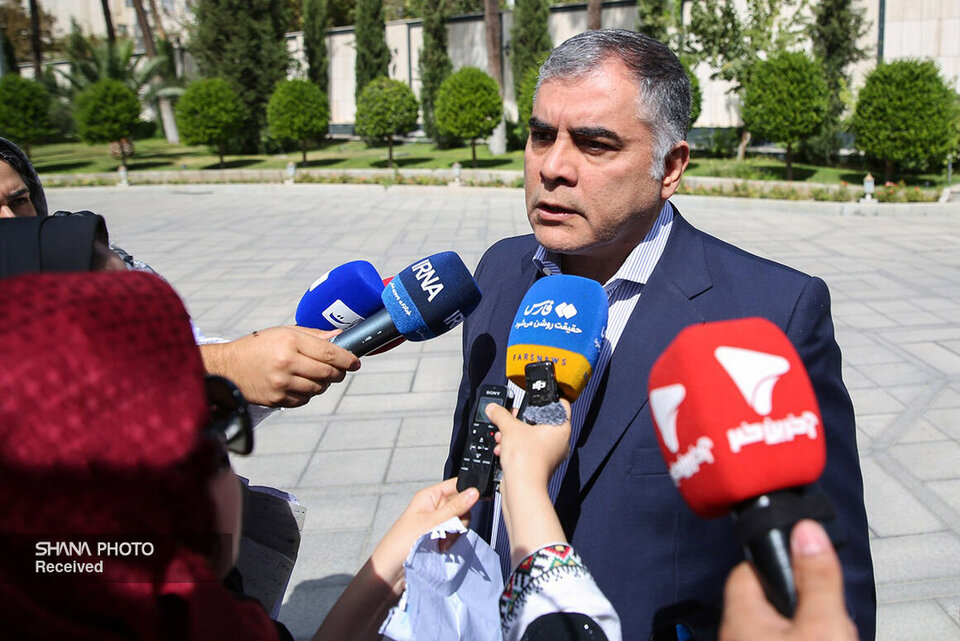“We have no concerns at the moment,” he said Wednesday on the sidelines of a cabinet meeting. “I cannot disclose what measures we have taken, but we have plans for any situation. We have dealt with such restrictions for years. Sometimes they intensify, and sometimes conditions are more flexible. We are prepared for all scenarios. There is no cause for worry.”
Paknejad dismissed claims from some Western sources that Iran is selling oil to China in exchange for fighter jets. “Western sources make many such allegations,” he said.
Gasoline Policies Will Not Burden the Public
Paknejad said a working group composed of multiple government bodies has been formed to study options for managing gasoline consumption and reducing imports. Any decision, he said, will be issued only after expert review and approval by governing bodies.
“None of these measures should create hardship or restrictions for the public,” he said.
He added that speculation about gasoline policy has been circulating in the media for some time. “No action will be taken that puts our people under pressure. That is a core principle of the government. So far, the discussions show that the public’s gasoline quota — both in volume and price — will not change. Other issues are still under expert review and will be announced once finalized.”
Paknejad said setting gasoline prices is beyond the Oil Ministry’s authority. Still, he noted that gasoline imports have reached levels that “are becoming somewhat burdensome” for the national budget. “We must find solutions, but none should place restrictions on the public.”
On the possibility of introducing a third gasoline price tier, he said the priority is reducing consumption. “A large share of national resources is currently spent on gasoline imports. We need to take efficiency measures. Initial steps may be nonpricing solutions, but the working groups will determine the final approach.”
Imported Premium Gasoline to Be Offered on Energy Exchange Next Week
Paknejad said imported premium gasoline will be offered on the Iran Energy Exchange next week. “The private sector imports this fuel and will sell it based on its cost for those who wish to use it. The base price will differ.”
He said the private sector is responsible for imports under the government-approved legal framework and related regulations. “The base price set on the exchange is slightly above 65,000 tomans. Additional costs such as transport, distribution and legal fees may apply and will be clarified at the time of sale.”
Significant Reduction in Flare Gas
Paknejad said flare-gas collection has reached “a considerable level” over the past year. Twelve new contracts for flare-gas collection were recently signed in the presence of the president, and are expected to come online within 18 months.
“The government is strongly committed to this issue, and the president is personally following it,” he said, noting that projects include long-term NGL plant construction and short-term private-sector engagements to utilize flare gas.
He dismissed claims that gasoline stations receive a share of subsidized fuel. “That is incorrect. Their service fee is defined, and to my recollection it is 650 tomans per liter.”
Fuel Reserves for Power Plants in Good Condition
Paknejad said Iran is well-prepared for winter. “This year, based on lessons learned from last year, our power-plant fuel reserves are in very good condition. When we took office last year, reserves — especially for power plants — were low, but we managed the situation and passed the winter.”
He said about 3.3 billion liters of liquid fuel have been stored this year — nearly double last year’s amount. “We filled the storage to the maximum capacity of the power-plant tanks, and we are holding additional volumes in distribution depots. If gas supplies to power plants need to be limited or managed, we will face fewer challenges thanks to this liquid fuel.”
Claims of Misuse of Subsidized Fuel Must Be Legally Reviewed
Responding to questions about allegations involving the Ahdaf Holding and a reported dismissal order for one of its managers, Paknejad said he has not received any such notification. “Such rulings must be formally communicated through legal channels before we are obliged to act. If oversight bodies officially notify us, we will follow the law.”
On agricultural fuel quotas, he said decisions are made by a committee led by the Headquarters for Combating Smuggling of Goods and Currency, based on cultivated area and crop patterns. “If the committee reaches a conclusion, we implement it. If not, we do nothing. The Oil Ministry does not set agricultural fuel quotas; it only executes the decisions.”
He said allegations that some shrimp farms sell subsidized fuel must be examined. “We cannot target members of various sectors with accusations without proper review. The judiciary and its enforcement bodies must investigate and issue their findings.”


Your Comment